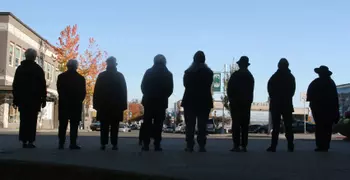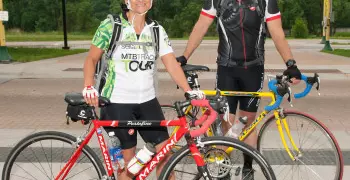
“In the end, we will remember not the words of our enemies,
but the silence of our friends.”
-Martin Luther King, Jr.
In a just world, everyone would be treated equally, paid fairly, and have equal access to the resources needed to build a happy, healthy, and safe life.
But the reality we live in doesn't look like that. In the United States, the majority of the wealth is owned by a slim percentage of the population, while millions suffer in poverty. Racism, homophobia, and bigotry are entrenched in our institutions. Many people do not have access to the resources needed to create a safe home or protect themselves from violence.
At the core, security and equity are connected: an equitable society increases security—and wellbeing--for everyone. Thus, working toward equity is our responsibility, especially those who exist in non-marginalized identities.
Learn about systemic inequality
Listening is the most important step in getting involved in social justice work – especially for people coming from non-marginalized groups. White people in particular can become better allies by learning about the ways that systemic oppression and historical trauma impact the wellbeing of people of color. This education can come from books, social media feeds, movies, groups – just be sure to set aside your worldviews and biases to listen and learn.
Notice the ways you feel safe and the spaces that you feel comfortable in – who might not feel safe there? What makes one person feel safe will not necessarily have the same effect for another. For example, a white person may believe that calling the police is the right action when presented with a threat, while a Black person may feel more threatened by the presence of police. Likewise, a gay man may not feel safe joining his straight friends at a small-town bar.
Mindfulness helps us see and stay present
As we become more aware of injustice, we may find we resist fully absorbing what we are seeing. Law professor, mindfulness teacher, and social justice advocate Rhonda Magee proposes that we use mindfulness to do this work: “Mindfulness deepens our ability to notice very subtle aspects of our lived experience and to be present with those aspects,” Magee says. “Mindfulness practice can bring about transformation on three levels: personal, interpersonal, and collective. We must first clearly see our own biases in action, and how they harm others, and then work with compassion to bring justice into the world.”
Participate in organized efforts
Creating systemic change happens on multiple levels – while changing your own worldview and behavior is the first step, meaningful change is the result of collective action. There are many ways you can get involved, including volunteering, supporting local businesses (especially those owned by minorities), voting for policies and politicians that support equity, donating money to organizations dedicated to making meaningful systemic change, or writing to lawmakers about the need for economic and racial equality within our legal system.
Don’t forget the important role of social networks. We need to include marginalized groups in social networks, to offer them the same connection to information and opportunities those networks enable.
 Use your voice
Use your voice
While we may sometimes be hesitant to speak up about inequality – whether because we are afraid of offending others, getting it "wrong," or even worried about a violent response – Dr. King's quote at the beginning of this article illustrates the harm that can be done when we don't speak up at all.
It is vital for people who hold privileged positions in society to speak up when they see acts of oppressive bias – for example, for white people to condemn acts of racism, especially among white friends who may not have considered their words or actions racist ("It was just a joke!").
The Vermont-NEA Racial Justice Task Force has created a chart with multiple ways to interrupt bias by both calling others out and "calling in," which is helpful "when there is an opportunity to explore deeper, make meaning together, and find a mutual sense of understanding across difference."
Speaking up doesn't always mean calling someone out. Sometimes a simple gesture has a large impact. For example, when a cisgender person (someone whose gender identity corresponds with their birth sex) offers their preferred pronoun when introducing themselves to a group, they can set a tone that makes others in the group – which may include transgender or gender-nonconforming people – feel safer announcing theirs.
Stay safe while protesting
If you choose to join organized protests, keep yourself safe with tips from Amnesty USA, which include bringing water and snacks, sticking with friends, and dealing with teargas.
Amnesty International (n.d.) Safety During Protest. Retrieved from https://www.amnestyusa.org/pdfs/SafeyDuringProtest_F.pdf
Atcheson, S. (2020). Allyship - The Key To Unlocking The Power Of Diversity. Retrieved from https://www.forbes.com/sites/shereeatcheson/2018/11/30/allyship-the-key…;





